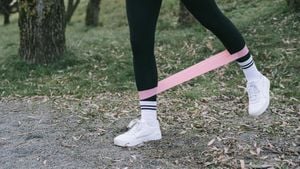On Saturday, November 25, 2023, the Canadian government extended a long-awaited apology to the Inuit communities of Nunavik for the systematic slaughter of sled dogs, known as qimmiit, during the 1950s and 1960s. Crown-Indigenous Relations Minister Gary Anandasangaree made this emotional announcement during a ceremony held at the community center in Kangiqsujuaq, located within the Inuit region of northern Quebec. This apology is accompanied by the promise of C$45 million (approximately US$32 million) for compensation to the affected Inuit families.
The brutal killings, primarily conducted by the Royal Canadian Mounted Police (RCMP) and other authorities, involved the shooting of over 1,000 sled dogs, which severed the Inuit people from their traditional ways of life. Sled dogs were not merely pets; they were integral to Inuit culture, facilitating transport, hunting, and gathering necessities across the vast, icy landscapes.
During the ceremony, Anandasangaree expressed, "On behalf of the government of Canada and all Canadians, I am sorry. Please forgive us." The minister noted, "The dog slaughter occurred across Nunavik, spreading grief and devastation from the brutality. For this, words are not enough to express the sorrow and regret we feel." The apology marks long-overdue recognition of the harm inflicted on the Inuit communities.
Pita Aatami, the president of Makivvik Corporation, which advocates for Inuit rights, has long championed the call for this apology. He articulated how the dog slaughter left families without means to hunt and travel, effectively stripping them of their autonomy and lifestyle. Aatami recalled hearing painful stories about the sacrifices made by Inuit families trying to protect their dogs from being killed by law enforcement. "The hurt not only affected individuals who lost their dogs; it wounded entire families, leaving them without resources to hunt, fish, or access driftwood for fire," he explained.
The historical slaughter, underpinned by colonial practices and federal policies of the time, was largely dismissed for decades. A 2010 report by former Quebec Superior Court Justice Jean-Jacques Croteau revealed the extent of the destruction, criticizing the provincial police for disregarding the significant role of sled dogs within Inuit societies. The report pointed out the federal government's failure to intercede on behalf of the Inuit people, highlighting how the implementation of mandated schooling—especially residential schools—was intertwined with the dog killings.
During Anandasangaree’s address, he lamented, "Because we waited, many whose lives were affected by the dog slaughter are not with us to hear this apology." This recognition of lost lives adds gravity to the apology, emphasizing the importance of acknowledging historical injustices to pave the way for healing.
Although the apology is seen as a step toward reconciliation, many Inuit leaders assert more action is needed to address the deep-rooted impacts of colonization on their communities. Natan Obed, the president of Inuit Tapiriit Kanatami, stated, "This apology is just one step toward reconciliation among the ‘intricate web of colonization’ still affecting Inuit today." He called for broader reparations to address the challenges faced by Inuit, such as improving housing, health care, and infrastructure.
The suffering of the Inuit communities during the dog slaughter cannot be understated. Families relied on their dogs not just for companionship but for survival. Many Inuit elders recounted how, before the 1950s and 1960s, owning sled dogs was synonymous with sustenance and independence. They emphasized how the dogs’ presence provided not just logistical support but emotional ties to their heritage and identity.
For Inuit communities, the relationship with qimmiit extends beyond utility; it signifies cultural practices and traditions passed down through generations. The federal government’s acknowledgment of these injustices helps validate the Inuit experience and their enduring attachment to their heritage.
Moving forward, part of the compensation package includes funds directed toward revitalizing Inuit dog sledding culture, enabling families to reclaim their connection to this aspect of their tradition. For Aatami, this aspect of the compensation symbolizes hope. “We want to see the culture of dog teaming continue; it's important for our language and lifestyle,” he asserted. The compensation will also cover direct reparations for those families directly affected by the slaughter.
Overall, the apology and compensation package reflect both recognition of past misdeeds and hope for multicultural harmony and support for Indigenous rights in Canada. While this recent development is significant, leaders within the Inuit community maintain it’s just the beginning of a more comprehensive effort to confront the layers of colonization and its impacts still felt today.
Throughout the ceremony, the sense of collective grief was evident, but so was the resilience and determination among the Inuit attendees, echoing their commitment to preserve their culture and way of life. Many reflect on how the historical trauma related to the dog slaughter continues to affect not only those who lived through it but also their children and grandchildren, creating what Aatami terms “intergenerational trauma.”
For Inuit like Anandasangaree, the path toward healing involves not just financial reparations but also the institutional acknowledgment of the foundational roles these canines play within their culture and society. The hope is to instill pride back within the community and forge stronger connections to their ancestral practices.



